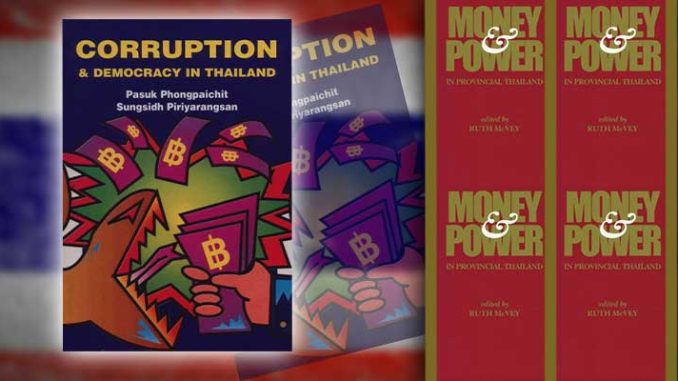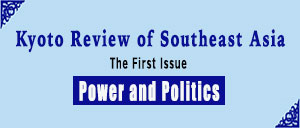
Corruption and Democracy in Thailand
Pasuk Phongpaichit and Sungsidh Piriyarangsan
Chiang Mai / Silkworm Books / 1994
Money and Power in Provincial Thailand
Edited by Ruth McVey
Honolulu / University of Hawaii Press / 2000
This essay reviews books that describe and analyze three recent social phenomena in Thailand: the rise of local bosses or gangsters known as chao pho; the growth of politically active provincial capitalist and middle classes; and the rising level of corruption. Corruption and Democracy in Thailand looks at the seedier aspects of the countryside, such as corruption, murder, and violence, which the authors regard as direct consequences of democratization, while Money and Power in Provincial Thailand investigates the way new patterns of political and economic domination have affected the relationship between Bangkok and the countryside. Together, these books supply evidence of an increasingly rural tilt to Thai politics as a whole.
Both works implicitly call into question the continuing relevance of two dominant theoretical perspectives that describe Thailand as either a “bureaucratic polity” or a “a liberal-corporatist polity.” The critique of these perspectives, however, needs to be pushed further. The phenomena described here—the rise of rural chao pho, their patronage alliances with national politicians, escalating violence in electoral politics, and the spread of corruption—indicate the resilience of “patrimonial democracy,” a condition in which the Thai state continues to be riddled with favoritism and nepotism and its power continues to be harnessed through personal contacts. The form of political competition has changed from intra-bureaucratic scramble to electoral scramble, but the nature of competition remains the same.
While Thai scholars tend to comment on this phenomenon from moral grounds, we should recognize that the patrimonial nature of democracy has benefited politicians so much that they have few incentives to change their behavior. Simply put, the interests of the ruling class lie in maintaining the current form of democracy.
Nishizaki Yoshinori
Nishizaki Yoshinori is a Ph.D. candidate in political science at the University of Washington with an interest in state-society relations in Thailand.
Read the full unabridged version of the article HERE

